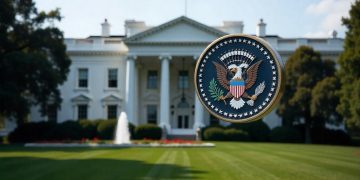President Donald Trump downplayed concerns about rising prices due to his tariff policies, even in the context of children’s toys. Speaking at a Cabinet meeting on Wednesday, Trump acknowledged that the tariffs could lead to higher costs but appeared to minimize their impact on American families.
“Maybe the children will have two dolls instead of 30 dolls,” Trump remarked, suggesting that the price of certain products might increase by a few dollars as a result of the tariffs. He emphasized that the changes were not significant enough to be a major concern.
Trump also commented on the types of products affected by the tariffs, asserting that many items imported from China were not essential for American consumers. He suggested that Americans might be willing to pay more for domestically produced goods, citing the potential for higher quality and stricter regulatory standards for American-made products.
White House Deputy Chief of Staff Stephen Miller reinforced this argument during a press briefing on Thursday, noting that consumers might choose American-made products over cheaper imports if they offered better quality and safety standards.
The president’s remarks came shortly after he addressed economic concerns in an exclusive interview with ABC News. When asked about potential economic hardships, Trump expressed optimism, stating that he believed “great times are ahead” and defended his tariff policies as necessary to address trade imbalances with other nations.
Trump’s tariffs, which include specific levies on steel, aluminum, and automobiles, as well as a 10% tariff on imports from many trade partners and a 145% tariff on Chinese goods, have faced criticism for potentially driving up costs for U.S. consumers. Businesses have warned of price hikes and shortages resulting from these trade measures. However, Trump has repeatedly argued that the long-term benefits, including a boost to American manufacturing, justify these short-term challenges.
Despite the concerns raised by some analysts, including warnings from Moody’s about potential increased costs for American households, Trump remains steadfast in his position that these trade policies are essential for correcting perceived trade imbalances. He also addressed concerns that some of his supporters might not have anticipated these economic consequences, asserting that they voted for the policies he had campaigned on.
Additionally, while the U.S. economy contracted by 0.3% in the first quarter of 2025, Trump has pointed to the previous administration under Joe Biden as the cause of the downturn, distancing himself from any negative economic data during his second term.
As the administration continues to navigate the complexities of its tariff policies, it remains to be seen how these measures will affect U.S. consumers and businesses in the coming months.
Get the latest supply chain report news at The Supply Chain Report. Learn more about international trade with tools from ADAMftd.com.
#TrumpTariffs #TradePolicy #TariffConcerns #ConsumerGoods #PriceInflation #GlobalTrade #USEconomy















